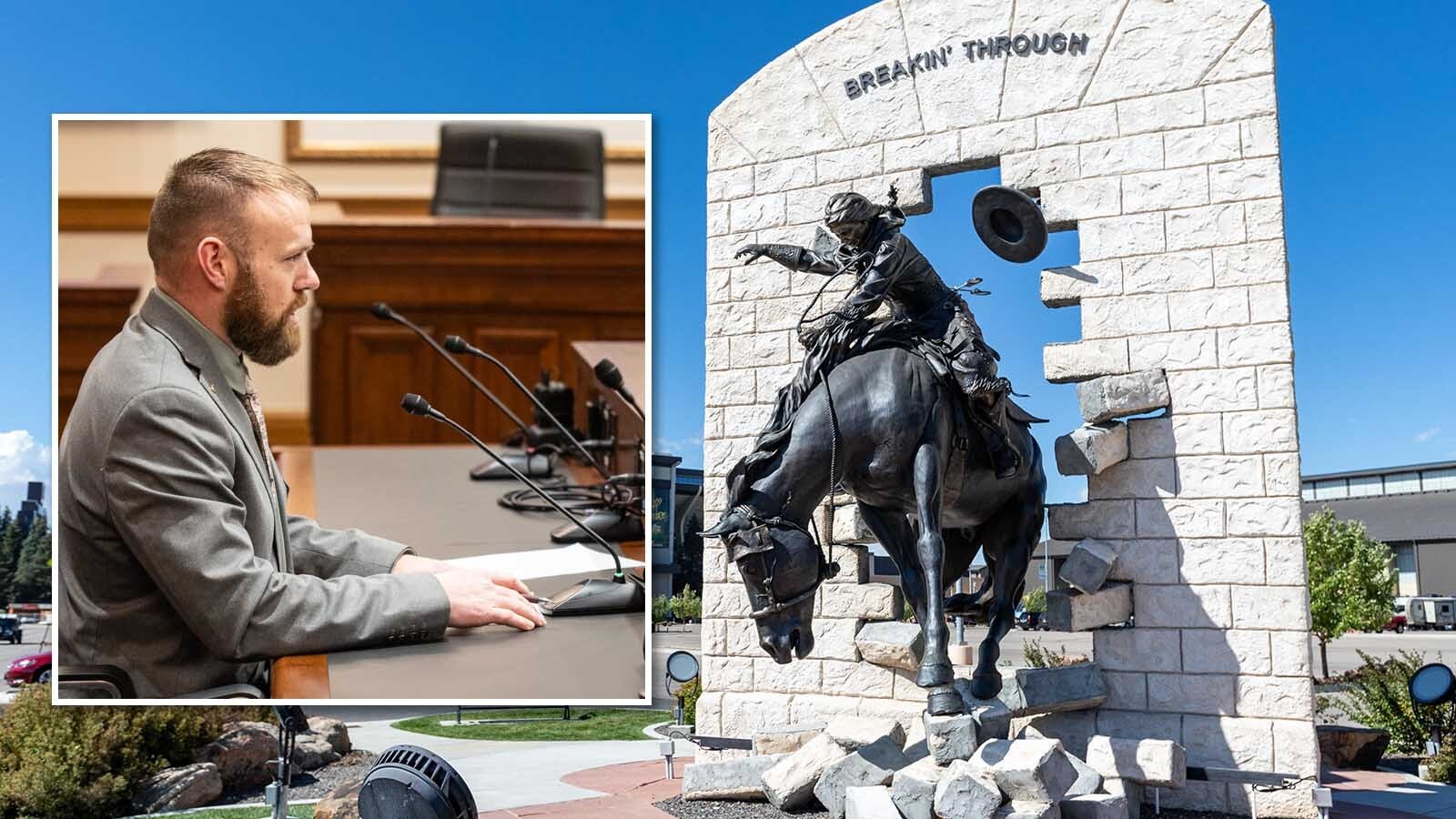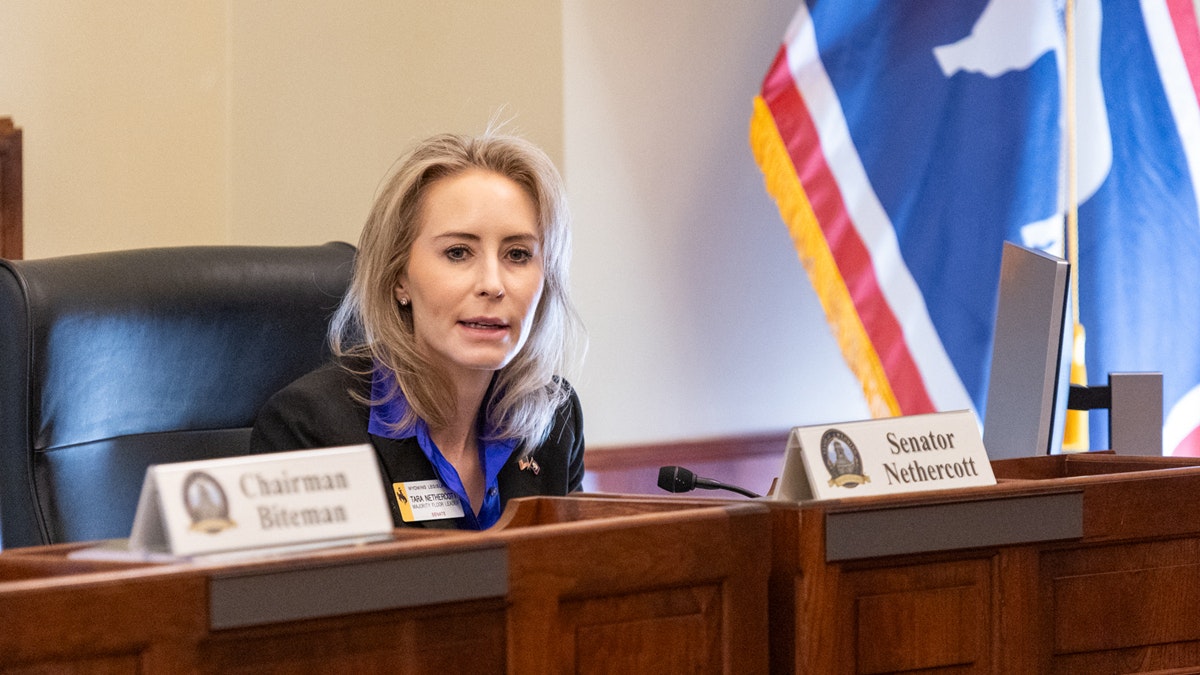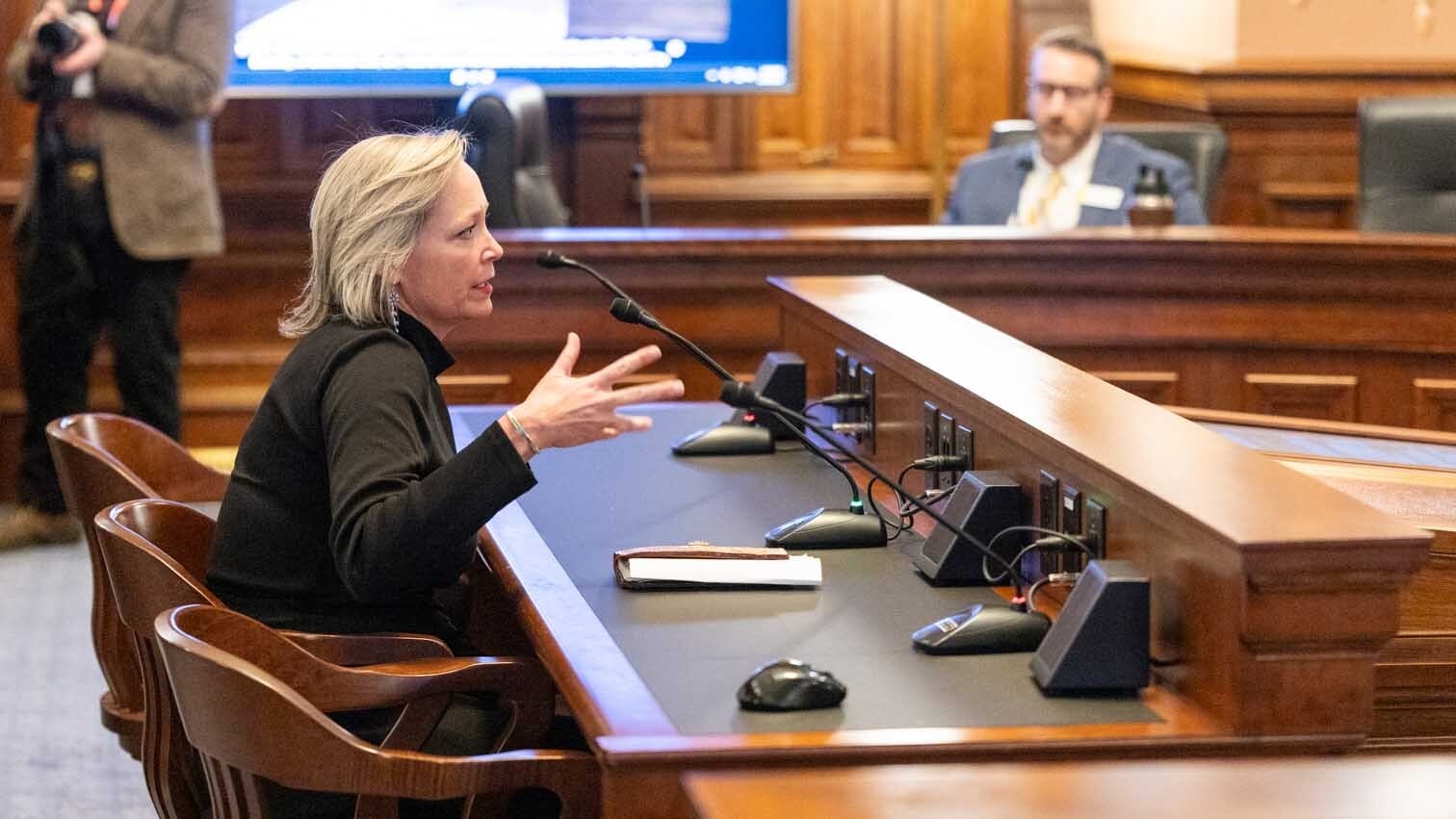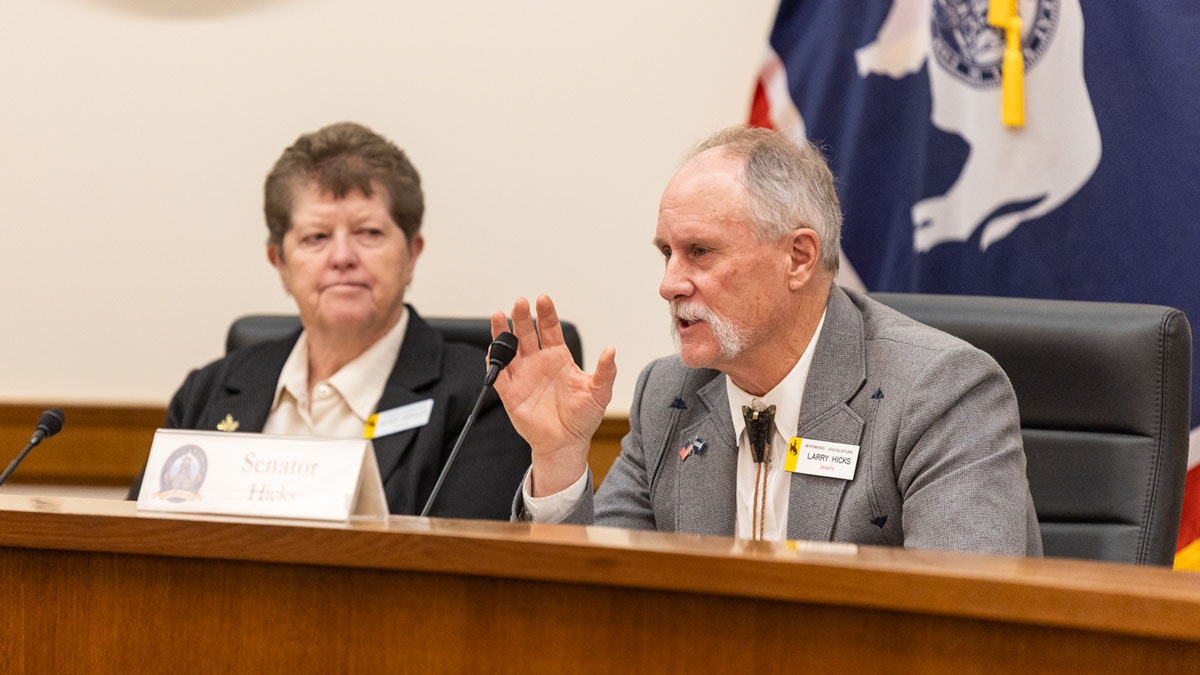Wyoming lawmakers lamented a predicament on Tuesday: political dread of raising taxes, and a projected $400 million annual shortfall for the state’s highway department.
The legislative Transportation, Highways and Military Affairs Committee then took a cautious approach to a proposed bill to increase Wyoming’s fuel tax from 23 cents per gallon to 33 cents by the summer of 2027. They amended the bill so that the two-part, 10-cent tax hike would not go into full effect until the summer of 2028, instead.
Then they voted to table the bill and debate it again at the committee’s Oct. 20 meeting in Cheyenne.
The Wyoming Department of Transportation (WYDOT) is facing a $411 million annual shortfall over the next decade, based on projections from conditions analyzed in 2019, WYDOT Chief Financial Officer Dennis Byrne told the committee.
He believes that the budget shortfall has worsened since the analysis, Byrne added.
“We’re going to need more, significant money for a longer amount of time, and if we don’t, the obvious conclusion is, we have to start prioritizing within the (agency’s) mission what gets done,” said Byrne.
A tax hike is a daunting goal in Wyoming, committee members said.
“We live in an environment right now where any tax is taboo, from a political standpoint,” said Rep. Bob Nicholas, R-Cheyenne. “We’re faced with a moral-political question… Every year that goes by (in which) we don’t improve the highways, that one dollar turns into three, four - $8 if we don’t come in and fix it.”
Yet, added Nicholas, state House of Representatives members run for reelection every two years in their largely anti-tax districts.
“We’re basically saying, ‘We’re not going to raise a damn penny because I want to get reelected,’ (but) we have to bite the bullet.”
Nicholas voiced his support for the bill.
He was also the lawmaker who later proposed the successful amendment to phase in its tax increases more gradually.
The committee’s two chairs, Sen. Stephan Pappas, R-Cheyenne, and Rep. Landon Brown, R-Cheyenne, voiced similar but more pessimistic thoughts on the political predicament.
Brown said as committee co-chair, he’d have to be the one to present the bill on the House floor.
House Speaker Rep. Chip Neiman, R-Hulett, may prevent the bill from reaching the floor at all, Brown said, and if it did hit the floor, it "will be used solely as a political agenda item” for people looking to paint Brown or other proponents as tax grabbers, Brown added.
Neiman did not immediately respond to a text message request for comment.
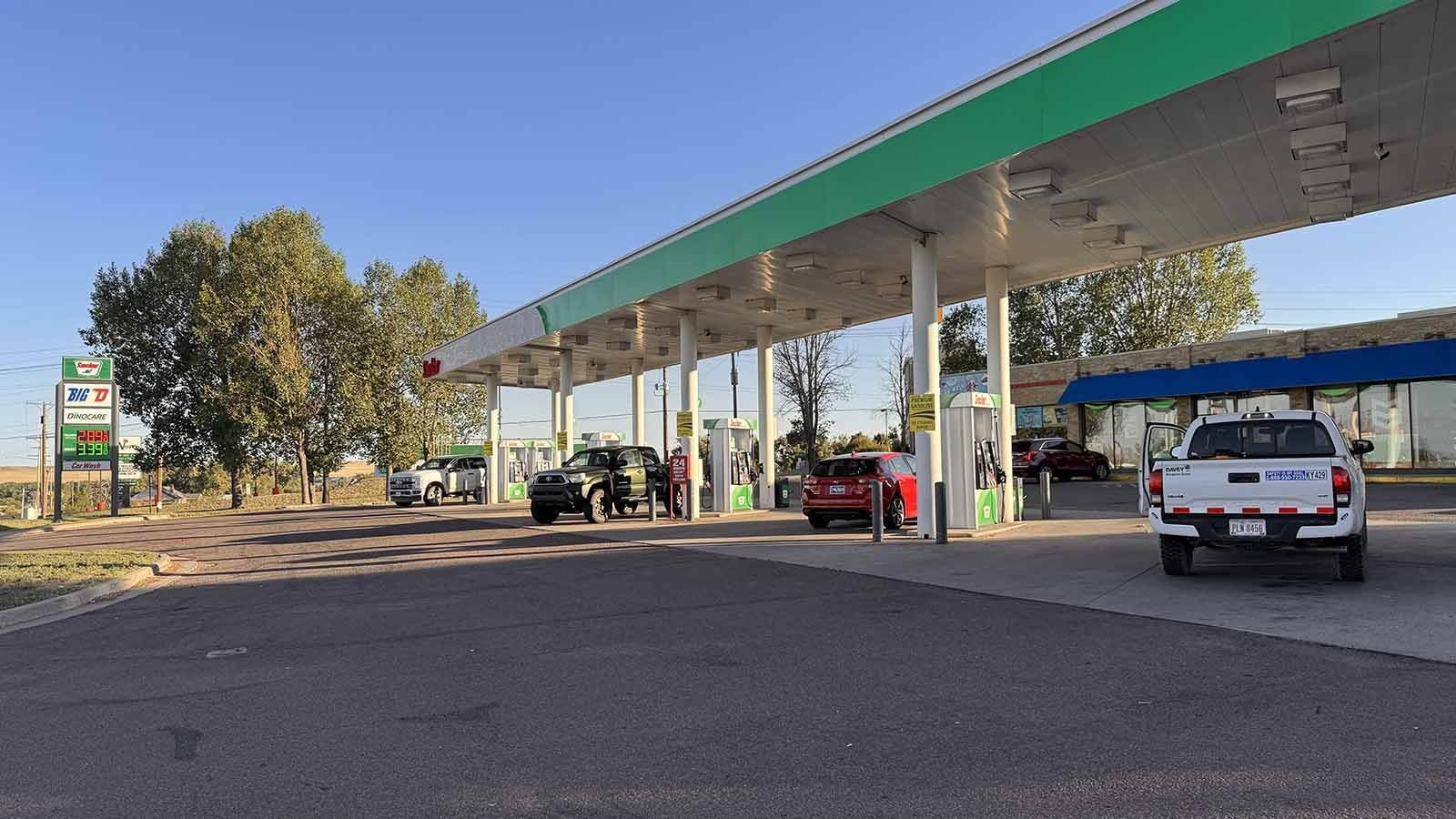
I’ll Do It
Rep. Lloyd Larsen, R-Lander, offered to carry the bill for Brown.
In the 2024 Republican primary election, Landon Brown defeated his opponent Exie Brown by a narrow 17 votes.
Larsen – a formidable incumbent over the years – defeated his 2024 Republican challenger Tina Clifford by 227 votes, nearly 9% of the total.
On Tuesday Larsen encouraged more fortitude on conscience-voting.
“We are elected to take on difficult problems that help move the state forward,” said Larsen. “I think we have a responsibility to look at this bill.”
Still Short Though
Even the proposed fuel tax hike barely dents the projected shortfall, according to committee testimony.
Every penny increase raises fuel tax revenues by $6.8 million annually — $4.5 million of which would go to WYDOT, said Byrne.
So the first of two five-cent tax hikes in the phased approach would bring $22.5 million annually to WYDOT.
It would also bring about $5.7 million annually to counties, $3.3 million annually to cities and $638,000 to state parks, said Nick Siddle, of the Wyoming County Commissioners Association’s transportation committee.
Siddle spoke tentatively in support of the bill, pending a member vote.
The second-phase five-cent hike in 2028 would double those figures.
Let’s Get That Study
Nicholas referenced a University of Wyoming study following the last Wyoming fuel-tax increase – of 10 cents in 2013 – concluding that fuel prices only rose 1 cent per gallon after that.
The market responds “really quick” to such increases, WYDOT Director Darin Westby testified.
But later Brett Moline, policy director of the Wyoming Farm Bureau Federation, countered, saying oil prices also dipped at that time. He urged the committee to get the full data picture.
Nicholas later asked the committee’s staffers to obtain that study ahead of the next meeting.
Rep. Reuben Tarver, R-Gillette, added: “can we have that correlated, too, with the oil price?”
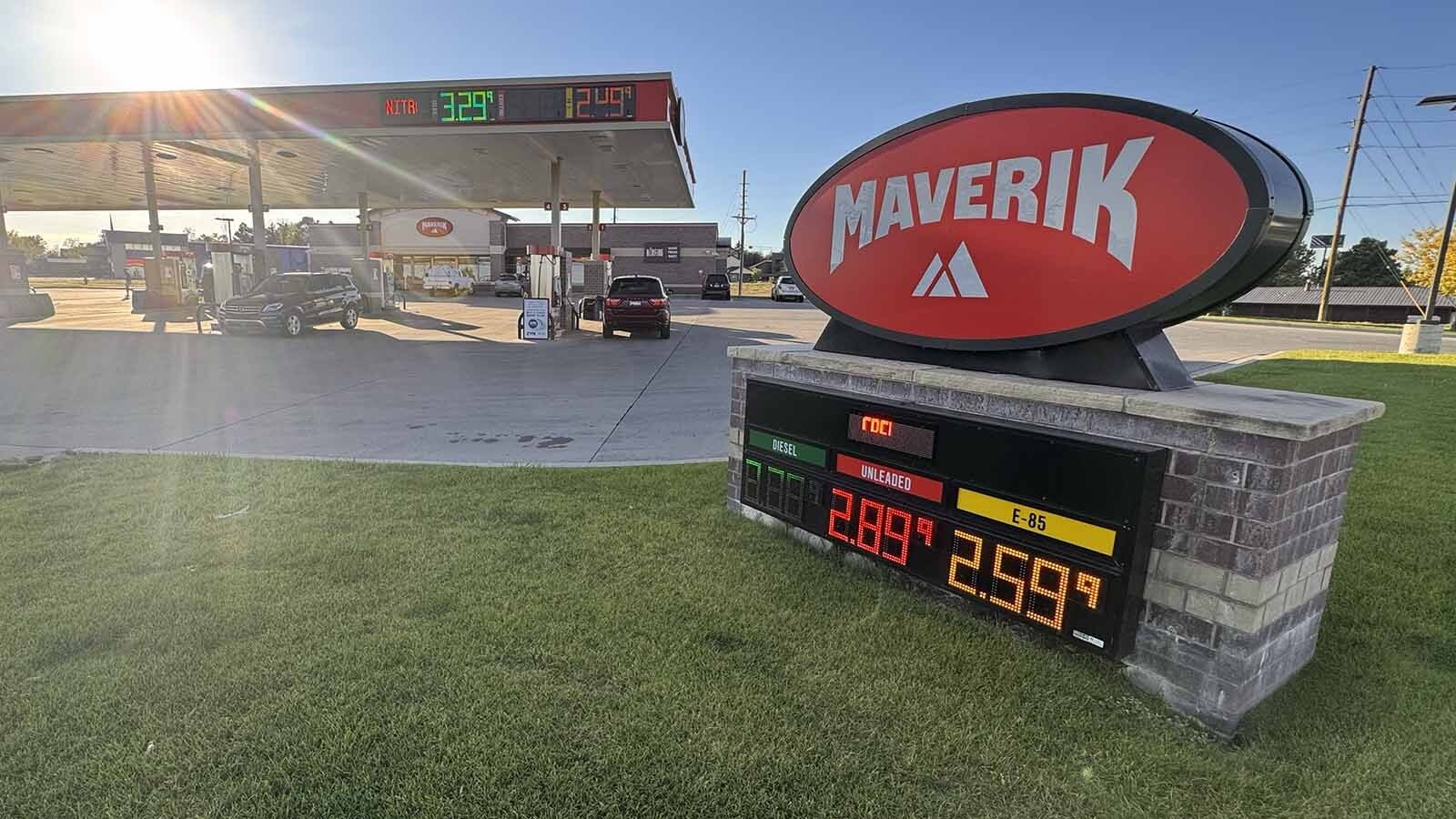
It’s Hitting Somewhere
Rep. Dalton Banks, R-Cowley, voiced opposition to the bill.
Someone will likely have to bear the increase, said Banks, whether that’s through an increased cost of goods or services, or somewhere else where “my little old lady neighbor… counts every penny.”
Banks said he’s not willing to see the bill move forward without more economic data.
Sen. John Kolb, R-Rock Springs, said the trick is to pay attention to other, surrounding states.
If Wyoming’s fuel tax rate is the lowest in the region – as multiple people said it is – then oil companies will keep the prices fairly consistent in Wyoming and other states, to enjoy the extra profits in the Cowboy State, he said.
“When we lower our taxes in Wyoming, we’re benefitting the major oil companies,” he said. “The major companies, they’re not stupid.”
Clair McFarland can be reached at clair@cowboystatedaily.com.


